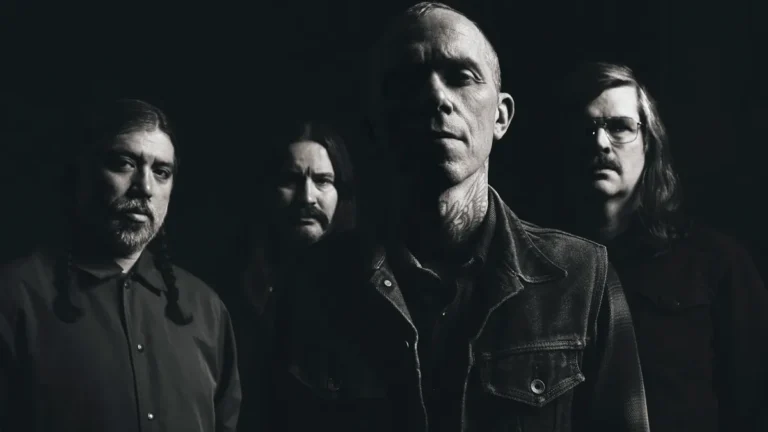Converge have announced their return with Love Is Not Enough, a new full-length album scheduled for release on February 13th, 2026.
The timing places the record close to Valentine’s Day, though the Massachusetts hardcore pioneers are unlikely to be serving up romantic ballads.
The album marks the band’s first release as a quartet in nine years, following 2016’s crushing The Dusk in Us. While fans haven’t been entirely starved of new material — 2021 saw the collaborative effort Bloodmoon: I featuring Chelsea Wolfe — this represents a significant return for one of hardcore’s most influential outfits.
Vocalist Jacob Bannon has positioned the record as a response to what he perceives as missing elements in contemporary heavy music. “I think that realism is missing from a lot of modern music of any genre, but especially our genre,” Bannon explained (as per Louder Sound). “Things either go super raw and almost chaotic to the point where it’s distracting, or bands take the life out of what they’re doing by editing every aspect.”
The band’s philosophy centres around capturing authentic moments rather than pursuing technical perfection. “Sometimes the perfect take is the one that has some wildness to it. It’s not perfectly executed,” Bannon continued. “There’s a lot of powerful moments on this record and a lot of angry moments. The realism amplifies that.”

These sentiments find immediate expression in the album’s title track, released alongside the announcement. Listen above.
Love Music?
Get your daily dose of metal, rock, indie, pop, and everything else in between.
Recording took place at Ballou’s renowned God City Studios, with Bannon once again handling the artwork duties. Each track on Love Is Not Enough will feature individual artwork pieces, though these remain under wraps.
“We still identify this band as the outlet that’s essential to our lives. We give everything we have to it,” Bannon reflected. “Being past your average middle age, we’re starting to see deeper than before into a variety of places. And I don’t think that’s specific to us. I think that’s something that’s utterly relatable.”

































